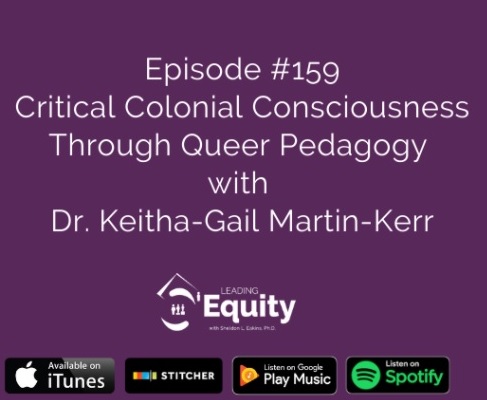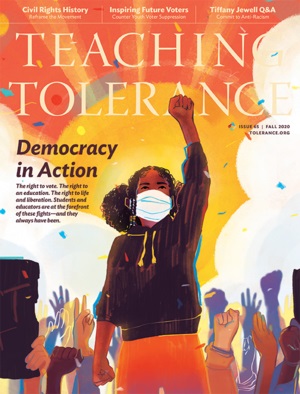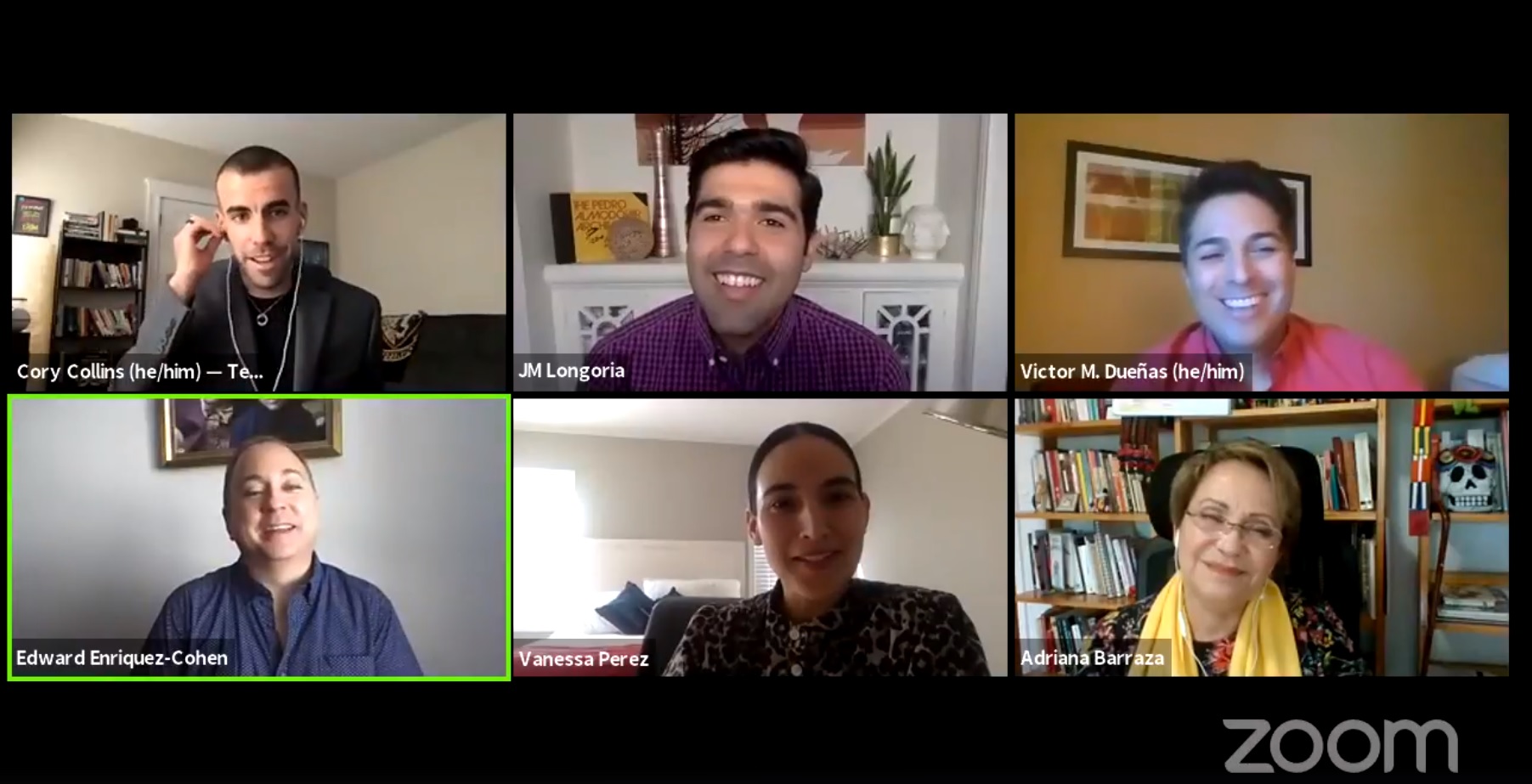
Inaugural Edition
![]()
Opening
Lines of
Communication
with LGBTQ
Youth
A Re-do on
Civil Rights
Thanks to
Black Lives
Matter
Why Critical
Race Theory
Matters
Gloss of Larsen-
Freeman's
Complexity
Theory
Self-
Determination
in Individual
Plans of Study
Questions on
Nuclear Power
from the Pre-
Fukushima Era
Thought
Experiment
to Learn
Action Research
SEE WINTER
EDITION FROM
Nov 2020
to Mar 2021
editor@
Information:
multilingual
adaptive.net
![]()

"It's O.K. To Be Who You Are"
Instilling Lifelong Self-Confidence for Latinx and LGBTQ Youth
Teaching Tolerance once again is at the leading edge on transformative developments for children, youth, teachers, and families in school communities across America today.
A highlight of the back-to-school season has been the premiere of "Bibi," available for streaming only at tolerance.org/bibi. The editor of Multilingual Adaptive Systems Newsletter was in the online audience for a zoom panel discussion featuring key actors, writers, and producers from the Bibi film project. Here is his report.
I am a five-and-a-half year cancer survivor. Something inside me was changed by the several years of chemotherapy that was needed to cure my cancer, or at least that is how I explain my hyper-sensitivity to poignant moments especially connected to family relationships in shows that I am watching. I was very close to my father and also felt truly loved by my mother as I was growing up, so losing them both suddenly in a plane accident when I was 16 years old was a traumatic moment that continues to resonate at the core of my being even now, nearly 50 years later. Finally, our Scott family crest has a motto "Amo," which I have always interpreted as an explanation for the strong passion I feel towards people, places, and things in my life, though logic keeps striving to dominate the workings of my mind as I am making decisions, facing challenges, and taking action.
I am a father -- four times -- and so I see the relationship between Bibi and Ernesto Solis, in the new educational film "Bibi" on the Teaching Tolerance website [ tolerance.org/bibi ] from the son's and the father's perspective. In addition, although I wish I had always been a sensitive, thoughtful, and kind parent, the truth is that each of my children could attest to having experienced moments in our relationships when I showed firmness instead of the flexibility that was needed and my egocentrism kept me from being open-minded enough to listen to and validate their feelings.
I have watched the 18-minute-long movie "Bibi As they state on the cover of their Fall 2020 magazine, titled DEMOCRACY IN ACTION:
As they state on the cover of their Fall 2020 magazine, titled DEMOCRACY IN ACTION:
The right to vote. The right to an education. The right to life and liberation. Students and educators are at the forefront of these fights--and they always have been.
The dedication at the end of the movie made me cry again:
To all Papás who with love and compassion have embraced their own Bibis.A todos los papás que con amor y compasión aceptaron a sus propios Bibis.
I also watched a wonderful panel discussion that included: the film’s director and writer Victor M. Dueñas, actor and writer JM Longoria, producers Edward Enriquez-Cohen and Vanessa Perez, and Academy Award-nominated actress Adriana Barraza. This hour-long panel on zoom was facilitated by Cory Collins, a senior writer for the Teaching Tolerance magazine and website. The panelists reiterated their commitment to the "Bibi" project and expressed willingness to connect directly with classrooms that are using the film if teachers contact and invite them to do so, which is already happening on social media.
Co-producer Edward Enriquez-Cohen recounted how when he and actress Adriana Barraza took "Bibi" to Mexico to show it there, a young audience member came up to them and told them of a friend who had attempted suicide and who had not been able to confide in her mother about what she was going through, but said that now he thought she would be able to communicate to her mother by sharing this film. "That meant more than anything else in the world," said Enriquez-Cohen, "because for us touching one person's life, to make that difference and let them know that it's OK to be who you are--that's the most important thing."
"I think to give hope and to teach young people you are not alone, you are not lost, is a blessing," said Adriana Barraza, "because I remember my own experience as a teenager and I remember the pain when you think 'I'm alone'."
At its heart, "Bibi" is a story of relationships, healing, understanding, and forgiveness, offering validation and hope to LGBTQ youth. There is a lot there for Latinx as well as non-Latinx teachers, students, and families. The movie transitions seamlessingly between dialogue (mostly English, but some Spanish) and flashbacks from Bibi's experiences as a child, an adolescent, and a young adult. Closed captions are available in both English and Spanish. It would be a disservice to the exquisite story-telling and cinematography of the film for me to recount, synthesize, or try to summarize the plot.
But this movie does provide an emotional entry to school-based or home-based conversations in which adults ideally will guide, listen, and explore together with middle-schoolers and high-schoolers issues that this viewing experience would make easier to discuss, especially in settings where young people feel safe expressing themselves and are reinforced in ways that nurture self-confidence and mutual respect.
The tolerance.org/bibi page includes practical lesson plans and resources that can support a teacher who sincerely wants to help students build their social-emotional skills, lifelong learning habits, and--indirectly as a consequence of graphic-organizers, letter-writing, and other activities--develop academic skills aligned with grade-level standards and sure to stimulate the imaginations of Hispanic youth to envision themselves one day in creative professions including careers in the film industry.
This is not only an awesome movie, but it exists at the heart of a well-conceived, coherent set of learning activities that middle-schoolers and high-schoolers will find relevant to their lives and the larger context of the world they are inheriting from elders who, in many respects, can benefit just as much from the consciousness-raising and social-emotional skills which are key outcomes of this powerful interdisciplinary unit.
Report by Robb Scott
editor@multilingualadaptive.net
2020 The Multilingual Adaptive Systems Newsletter
